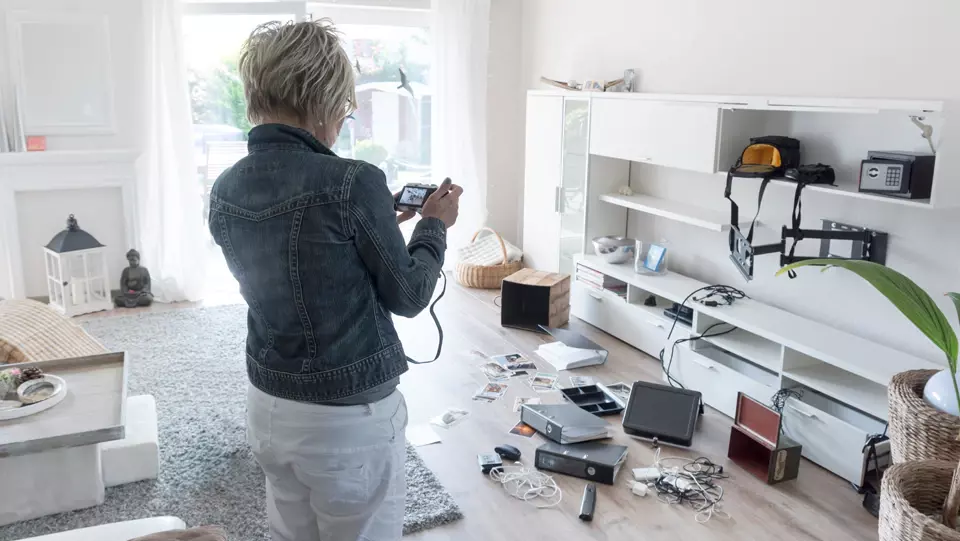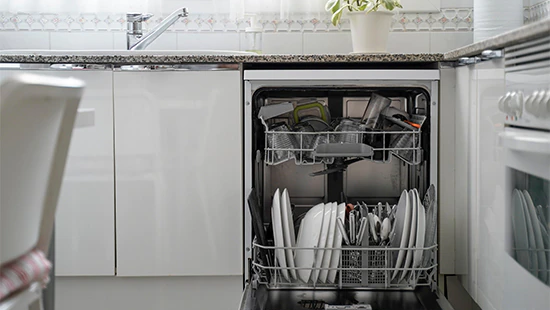How Much Renters Insurance Do I Need?


Most people believe the answer to that question is the amount required by a landlord or rental company as defined in their lease, but that answer might not be right for you.
Think about the things you own. Then think about what it would cost to repurchase or pay to repair those items if they were lost or damaged during a robbery, fire or other incident.
That’s where renters insurance comes in. It can help you cover the cost to replace the things you lose because of an unexpected event. It also can help pay for housing and other living expenses should your apartment, condo or home become uninhabitable due to a covered loss. In addition, it can help to pay expenses if you damage someone else’s property or are found liable for someone’s injuries.
Even though the amount of renters insurance you should purchase depends on your personal circumstances, the average cost of renters insurance hovers around $326 a year, or about $27 a month. That’s the national average cost of a policy with $40,000 in personal property coverage and $100,000 of liability and a $1,000 deductible, according to a 2021 analysis conducted by insurance.com.1 Even a lower cost renters insurance policy could make a big difference in your life and help give you peace of mind if an unfortunate event occurs.
Tip: Find a local independent agent or contact a Travelers representative to help guide you to the right coverage for your needs.
What renters insurance covers
Let’s start with the basics and go over the three things a renters insurance policy typically covers:
- Personal property: Renters insurance can help cover the costs of damage to or loss of your furniture and personal possessions – at home or away from home – caused by things like fire, lightning, windstorm or other perils that are covered by your policy.
- Additional living expenses: You can expect your insurance company to cover some or all of the additional expenses you incur for a hotel or a new rental if your unit isn’t safe to live in because of a covered loss or repairs.
- Liability: Your renters personal liability insurance coverage can help cover the associated legal costs and related damages. Most renters insurance policies provide $100,000 (minimum) of financial protection for covered accidental bodily injury or property damage to others. Higher amounts of coverage are available.
Some of the common perils covered by renters insurance include losses resulting from:
- Lightning, wind, hail and other weather events
- Theft
- Vandalism
- Fire, smoke and certain types of water damage
Your policy documents will define what perils are covered.
It’s important to note that, typically, renters insurance policies don’t cover flood or earthquake damage. You may need to purchase separate coverage if your rental home, apartment or condo is located in an area where these things are likely to happen.
Did you know? Even though your landlord’s insurance typically covers the building from loss, it generally doesn’t cover your personal belongings from loss or damage.
Determine how much renters insurance coverage you need
Ask yourself these questions to figure out how much your possessions are worth:
What do I own?
You’ll want to make certain that your insurance policy provides adequate coverage for all of your belongings. Start by taking an inventory. Make a list of everything you own and its estimated value so you know how much it would cost to replace or repair anything if it’s stolen or damaged.
You don’t need to figure out the exact price of every item in your unit, but consider doing an online search to estimate the current value of your stuff. Look through your closets, drawers and storage areas, too. You may have valuables put away that you don’t remember.
Tip: Keep the list handy after you buy your policy in case you ever need to file a claim. This way, you’ll know what you own and how much it’s worth, which can help make the claim process easier. Keeping a photo record of your unit and all the things in it could help with this, too.
Do I need additional limits?
Every renters insurance policy has an overall limit for property claims. For example, if yours is $25,000, that’s the most your insurance company will pay for losses resulting from a covered event. Some renters insurance policies have sub-limits on certain categories of items like fine arts, silverware and jewelry. In the case of the $25,000 policy, the jewelry sub-limit may only cover up to $1,500, despite the higher overall policy limit.
Before you buy a renters insurance policy, make sure you understand its coverage limits and sub-limits. They should be adequate to cover the value of your possessions. Your insurance agent can work with you to help make sure you have appropriate coverage, including for your valuable or non-standard items.
Do I need any liability coverage?
Yes. If someone is injured in your rental unit or their property is damaged, or someone related to you causes damage, you could be pursued for damages. For example, if you break an expensive vase at a relative’s home or if your teenage child damages a neighbor’s garage, the right policy could cover you. These costs can add up fast and having enough liability coverage may allow you to handle them without dipping into your savings or emergency fund.
Many renters insurance policies include some liability coverage. Everyone’s situation is unique, and you should speak to your local independent agent or a Travelers representative to understand how much liability coverage you may need.
Ways to save on your renters insurance premium
There are several ways you can save on your renters insurance:
- Bundle your coverage. Bundling your renters insurance with your auto policy from the same carrier could help lower your monthly premium.
- Install safety devices in your unit, such as smoke alarms or deadbolt locks. This could help prevent costly damage.
- Agree to a higher deductible to qualify for a lower premium. Just make sure you can afford the higher deductible if you ever have to pay it.
- Pay in full. Pay for a full year of insurance when you buy or renew your policy rather than paying monthly.
- Sign up for automatic payments and go paperless. You may be eligible to reduce your premiums by a small percentage if you agree to do business electronically.
Are you still asking yourself whether renters insurance is worth it? Talk to your local independent agent or a Travelers representative for more information or to get a renters insurance quote.



